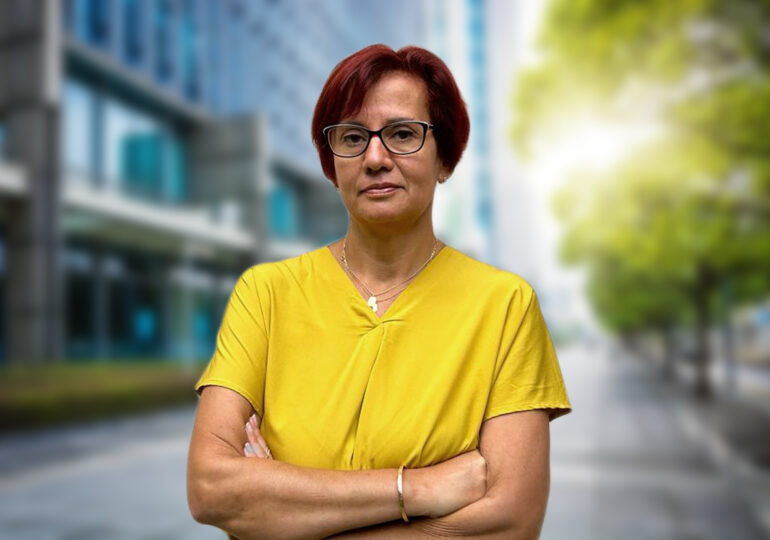The political calculation that seems to underlie the understanding regarding the data of the presidential and parliamentary elections, held on three consecutive Sundays for voting, is extremely simplistic and contradicted by the elections on June 9.
PSD and PNL are convinced that a party with a political score of around 30% in local elections, as they both are, will necessarily have candidates in the presidential final. So, on November 24, they send their candidates to the second round, on December 1 they enter the parliamentary elections with the electoral bonus of the first round and maximize their score, after which, on December 8, one of them wins and becomes president, and the other prime minister.
Simple, right? Not at all.
Clarification from the Eurolocale
In the case of PSD, the calculation is more likely to come true because it has a disciplined electorate, largely in small urban and rural areas, where voter mobilization is easier to achieve.
However, in the case of PNL, which relies on a much less disciplined but more informed and demanding electorate, mainly in large urban areas, the probability of getting all those who wanted a liberal mayor to vote for their candidate, regardless of the candidate's profile, is an illusion.
And the proof is not only in the poll scores that show that the leaders of PNL and PSD are below the party's scores. As I was saying, we find it even in the results of the elections on June 9.
On one hand, at least in Bucharest, the candidates of the two major parties for the position of general mayor were below their scores in the CGMB. So people who voted for the PSD or PNL list did not vote for their mayoral candidates.
But the capital was not an exception, as shown by the analysis of sociologist Cristian Andrei, published on Facebook.
In short: "1.16 million voters of the PSD and PNL voted for something completely different in the European elections than in the local elections. On the same day! Somewhere between 400,000 and half a million PSD and PNL voters voted for Nicu Ștefănuță, REPER, or Vlad Gheorghe. Another approximately half a million PSD and PNL voters voted for AUR and SOS. Around 100,000 PSD and PNL voters voted for various other small parties, including UDMR.
The consolidation brought us an unexpected clarification: 'Local' Romania is not at all equal and congruent with political Romania at the macro level. Many Romanians have diverse options, and others probably vote differently out of frustration, but certainly not in a disciplined manner."
Therefore, especially the liberal voters in local elections will be very difficult to convince to go and vote for Nicolae Ciucă, a kind of anti-candidate, especially since many options are on the table in the first round, from Mircea Geoana to Elena Lasconi.
Ciolacu, Caught in the Middle
Although he has more chances in this calculation, as I showed, Marcel Ciolacu seems the most hesitant to assume his candidacy. For him, the risks are not so much in the first round, but especially in the final, where there is a real possibility, even a probability, of not meeting Nicolae Ciucă, currently in 5th place with high chances to become 6th in the polls.
After the Eurolocale, it is evident that the hope of having George Simion in the second round is totally unrealistic. And in any other combination, Marcel Ciolacu is not a favorite, at least by virtue of the fact that the final traditionally illustrates the unique Romanian political front of the last three decades, not a left vs. right story, but PSD vs. anti-PSD (with all the names this party has had over time).
Marcel Ciolacu has to choose between two significant risks. If he takes the risk of running and loses, like all previous PSD prime ministers, he will lose everything. Maybe not immediately, Victor Ponta remained premier and PSD president for a while, but being a loser, the knife in the back is only a matter of time. Assurances that it won't be like that are nonsense, and Mr. Ciolacu knows it well. He may have also given them to Ms. Dăncilă.
The second risk is to refuse the candidacy, the first PSD president to do so, with a certain loss of authority and stature, which could bring him to the same result as defeat. However, he will not be a loser, which would change the paradigm and, hence, an additional chance.
The party has created an opportunity for me, the choice is mine, says Marcel Ciolacu. But it would still be his responsibility as the PSD president to find a viable candidate in his place. Which is not easy at all because it must be assumed by the party.
Ciucă, Iohannis's Candidate
Nicolae Ciucă seems to be heading towards candidacy, despite persistent rumors that the Liberals are considering replacing him. It would be a logical decision, after the immense investment in his image over the past months has not yielded results.
Accompanying Mr. Iohannis at the NATO summit was a symbolic handover, a clear message of support from the president, who is, after all, the political creator of Mr. Ciucă. I doubt it helps Mr. Ciucă electorally, given the plummeted levels of trust and sympathy towards Mr. Iohannis, but within the party, inexplicably from my point of view, the current president still imposes his will.
Nicolae Ciucă doesn't have much to lose in case of defeat. He doesn't have a real political career, so what does he have to lose? But the obedient PNL should consider that Nicolae Ciucă missing the first round would cause a disaster a week later, in the parliamentary elections. This is not something Mr. Iohannis will pay for, at most he will watch from a distance or from his new protocol villa.

